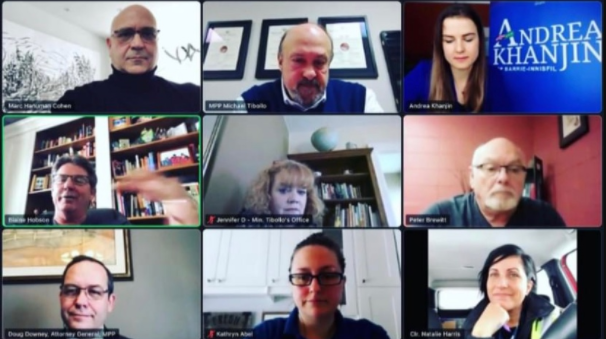Usually, being No. 1 on a list is a good thing, but when it comes to the current opioid crisis facing many Canadians, the city of Barrie has topped a list for a completely different reason.
The city reportedly has drug overdose rates sitting at eight times higher than the provincial average, according to data from the Simcoe Muskoka District Health Unit (SMDHU).
“For the city of Barrie, 2019 shows a rate of 182 visits per 100,000 people — or 272 actual visits (to the emergency department) and there were 47 opioid deaths in Barrie from January to September 2020,” said Mia Brown, the health unit's acting program manager of the substance use and injury prevention program.
That’s more than any other complete year since the start of the crisis.
“The adjusted mortality rate for these nine months was about double the rate observed in the previous two years. The overall Barrie opioid poisoning (emergency department) visit rate was two and a half times higher than Ontario in 2019.”
Those numbers, said Christine Nayler, speak to the real need for a safe consumption site in Barrie.
“I lost my son to addiction. The longer it takes to get this, the more people we lose and it’s frustrating. We need to get it done," she said.
The COVID-19 pandemic has likely played a role in the increase of drug overdoses. With the measures in place to decrease the rate of transmission of the coronavirus, Brown said there have been noted changes in the way people typically manage their drug use, including a decrease in availability and increase in the price of street drugs.
“It has also resulted in a decrease in the access to substance use treatment and harm reduction services and a noted increase in toxicity and contamination of the street drugs,” she said. “Although those services have begun to improve with better access to virtual support in recent months, the city still saw 47 suspected overdose deaths in the first nine months of 2020 alone.”
Along with leading the charge to find a location for a supervised consumption site (SCS) in Barrie, the health unit is also working to find additional ways to address the opioid crisis facing the city.
The health unit "continues to encourage individuals to carry naloxone, and the substance use and injury prevention program continues to supply naloxone to our regional partnerships through the Ontario naloxone program,” said Brown, adding the program has also been promoting the national overdose prevention call line for individuals who are using alone.
The health unit, she added, is aware of the safe supply pilot projects in place across the province through federal funding and is keeping a keen eye on the results from those various programs. In the meantime, Brown said they are continuing to work with multiple community partnerships, municipalities, and stakeholders to address the local crisis.
“In partnership with the Canadian Mental Health Association Simcoe County Branch, the SMDHU is a co-applicant for the Barrie SCS application. The two organizations are working with the Barrie SCS site selection advisory on site selection and community consultation planning to bring a viable option forward to the Barrie city council for endorsement,” she noted.
“If the Barrie city council endorses the proposed site, applications will be submitted to the Ministry of Health and Health Canada for approval and funding," Brown added.
Coun. Natalie Harris has been attempting to get the city to declare a public health emergency since first joining Barrie city council in 2018. She says she’s not surprised with the recent data.
“We are still in the process of bringing the amount and the proper type of resources that are needed to our city. I am disappointed that the emergency that I tried to declare back in 2018 didn’t pass, but I think over the past few years, what’s happened is education has increased and we are starting to see how much we really do need the help of other entities (and) other levels of government," said the Ward 6 councillor.
Harris recently participated in an online meeting with MPP Michael Tibola, who is serving as the associate minister of mental health and addictions, along with directors from Cornerstone to Recovery, to discuss how to best create change in how municipalities work with the provincial government in order to get funding for treatment.
“There are some great new initiatives coming forward and money being put on the table by the Ontario government to make it possible for people to get treatment faster," she said.
While Harris may not have been successful at getting the city to declare a public health emergency, she believes she did help bring a voice to the table and make the city more aware of the issue.
“It’s sad because we still have a toxic drug supply out there. COVID is a global pandemic and obviously makes the headlines, but under that headline is an emergency happening in our city that isn’t getting enough attention,” she said. “Despite that, we have advocates behind the scenes who aren’t giving up and we are still working hard. We are having some exciting conversations and plans coming forward to hopefully start to make big impacts on these numbers.”



